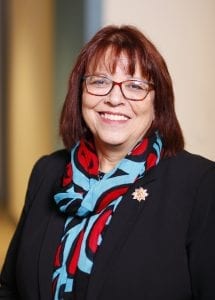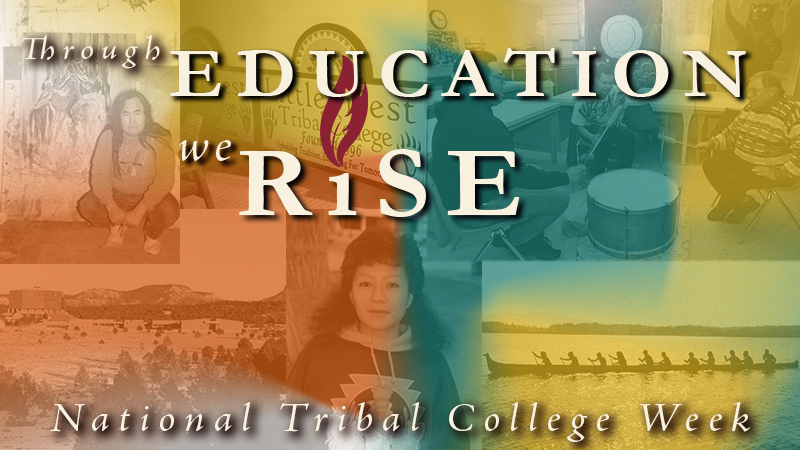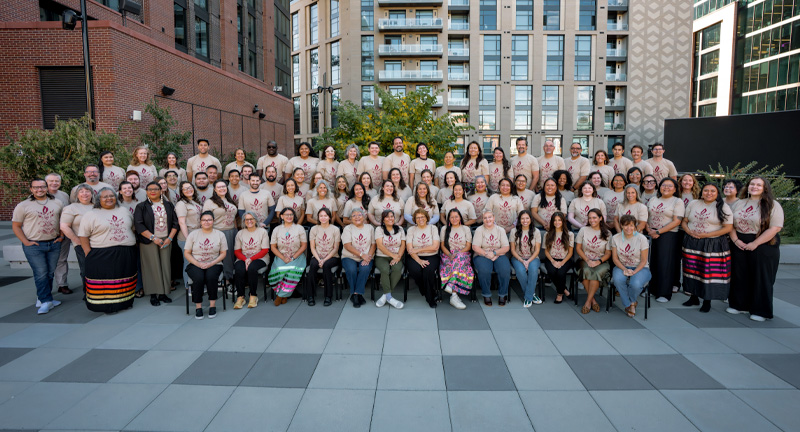
Cheryl Crazy Bull, President and CEO, American Indian College Fund
Why should we vote? Governments, councils, and school boards have not always been our allies. They do not necessarily ensure that we have a safety net to assure we have sufficient resources for our basic needs and to prosper, and they certainly have erected barriers to our participation as citizens.
So, I ask again, why should we vote? As an Indigenous educator and advocate for inherent rights, I value democracy. I know our democracy is built on the lands and blood of our people and that we suffered incredible and traumatic losses for its creation. I recognize that our relatives, African, Asian, and Hispanic Americans have also been exploited for the capitalism that underpins this democracy’s survival.
I am asking my Indigenous relatives to vote despite, and because of, our knowledge about our history and contemporary experiences. Without our voices at the polls, we cannot rectify the ongoing harm to our people and to others that is a reflection of the political climate and how resources are distributed. By participating in the election, I can make my voice heard to help elect people who believe in equity and the health and well-being of Indigenous people.
My own life has been deeply impacted by the decisions of elected officials. My public school education from kindergarten through high school was determined, in part, by the decisions of the elected Todd County School Board. My college education was influenced by the decisions of the South Dakota state legislature, which appoints officials who work with state higher education institutions. As I raised my own family and grew my career, I received food stamps, WIC, and low-income energy assistance. I believe in the safety net, in the importance of climate and energy policy and investment, and in the incredible value of supporting education at all levels. Working with tribal colleges and at tribally controlled schools has shown me the incredible impact of the U.S. Congress’s allocation of funds for education.
The vast majority of the monies allocated in federal, state, and local budgets, including our Tribal budgets, come from taxes that each of us pay in a variety of ways. Nearly all of us pay income and sales taxes. Elected officials create budgets and set priorities and our taxes are then distributed to pay for these initiatives.
Voters may have different political and social philosophies. We likely come from diverse backgrounds and have different experiences. We may want monies to be spent in entirely different ways. But one thing voters and in particular Indigenous voters can agree upon is that we can influence the economic, social, and political climate of our country and how funds are allocated to priorities by voting.
Voting is an act of self-determination. In modern society, voting in Tribal elections is one way that we reinforce the sovereignty of our Tribes. Each Tribe has their own voting requirements. You can learn how to vote in your tribal community by contacting your tribal office.
Voting is an act of inclusion. Voting is a way that all of us, as Indigenous people and as U.S. citizens, reinforce our belonging from our power and perspective. Each state has its own voting requirements.
We at the American Indian College Fund encourage voting as citizenship. We encourage voting regardless of political affiliation. Your vote is your voice in our democracy.
You can learn how to vote in local, state, and national elections by contacting any of the following resources:









